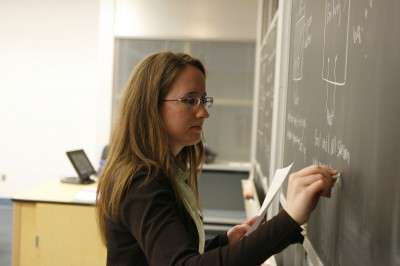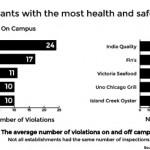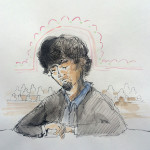
Education majors planning to become teachers might not prepared because of easier grading standards and coursework, according to a Wednesday study by the National Council on Teacher Quality.
The study, titled “Easy A’s and What’s Behind Them,” analyzed spring commencement brochures from 2014 and found that teacher candidates were more likely to graduate with academic honors compared to undergraduates with other majors.
“Teachers are being told that they are fully prepared. They’ve made all A’s for the most part and they think they’re golden. Once they get into a classroom, they hit a brick wall,” said Kate Walsh, a study author and president of NCTQ. “It [the situation] just doesn’t connect with the grades they’ve been getting. So what we know is that the course work is not getting up or simulating the real job at teaching.”
About 44 percent of teacher candidates graduated with academic honors compared to 30 percent of all other students in the graduating class, according to the report.
“We can say that teachers are mislead into thinking that they are ready to jump into a class, but they’re not,” Walsh said. “In other words, the course preparation does not connect with the reality.”
At about one-fourth of the 509 colleges and universities surveyed, the gap between graduating teacher candidates and other graduating students was a 20 percent difference and as high as 40 percent at 14 schools, according to the report.
Philip Tate, a lecturer of secondary education at Boston University’s School of Education, said concerns about the quality of teachers in the country has resulted in changes education curriculum.
“Many teacher educators like myself have argued that we need to be more careful about which school are allowed to give degrees in education,” he said. “One thing that’s changed nationwide, because of pressure from the state, and that we’ve changed at Boston University many years ago is that most of our students have a very strong background in the liberal arts.”
While SED students tend to do well in their courses, Tate said there are generally not many people graduating with high honors.
“Traditionally, courses that involve field placement, such as student teaching have higher grades than other course, even other course in the school of education,” he said. “The more field placements you have, the more chances students have if they work hard to get an A or a B there — and that does tend to inflate grades but it does happen in every field that as you are a junior or a senior you tend to do better in the field that you’ve chosen.”
Several students in SED said they do not agree with the findings of the report.
Karen Moy, a senior in SED, said she finds the report false because of the rigor she has faced in her education courses.
“SED is one of the most difficult schools to survive in,” she said. “It might not seem like a lot of work to other people, but just the amount of time and planning that it takes…you can’t really get graded on it.”
Sharisse Zeroonian, a freshman in SED, said although she has not taken many courses in SED yet, she understands how the study came to its conclusion about teacher preparedness and quality.
“Some countries have higher standards for their teachers,” she said. “A teacher here getting a C average would graduate … but somewhere in Europe, they would need A’s.”
Sandra Soto, a junior in SED, said compared to other schools at BU, she said SED is a dedicated community with assignments that tend to reflect what they aspire to do as teachers.
“We’re not taking a bunch of tests, we’re not studying for exams all the time, that’s true, but we’re not going to have to do that in our job,” she said. “We’re going to have to be able to be reflective, and we’re going to have to be able to be critical of our own practice and our students, and that’s what we’re preparing to do.”
Sekar Krisnauli, Will Tentindo and Meiling Bedard contributed to the reporting of this article.
Vice Chairman and archives keeper for The Daily Free Press Board of Directors. Former news editor. I like data, politics, and higher education, but will write about anything.




